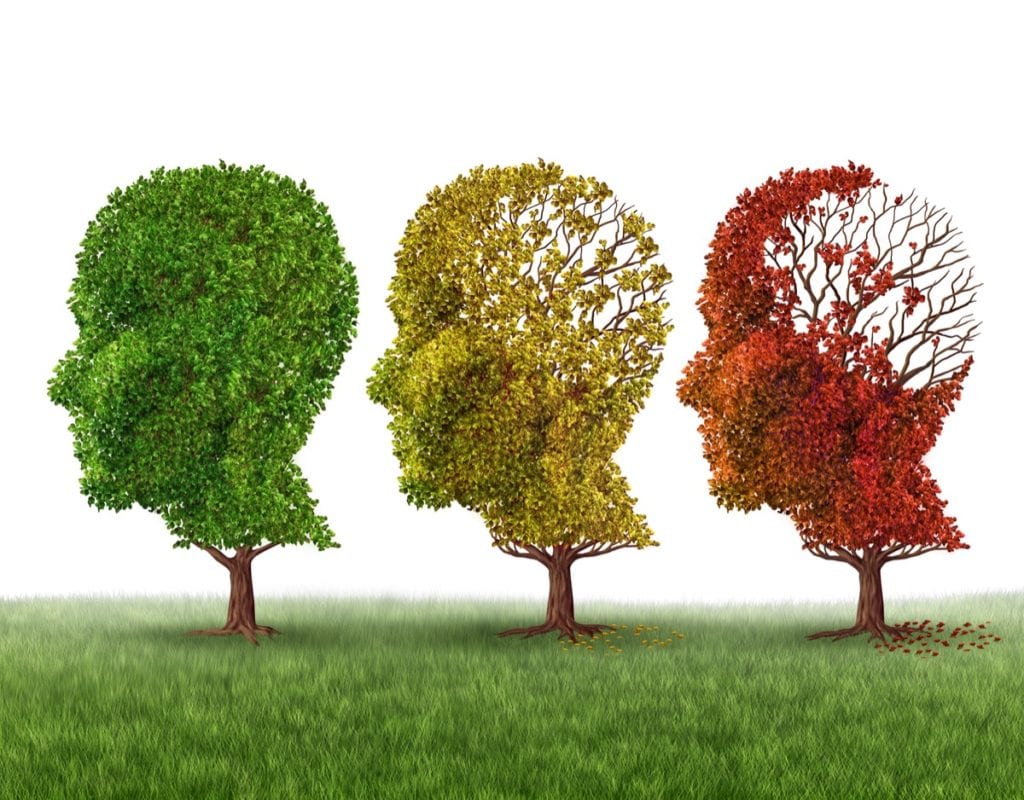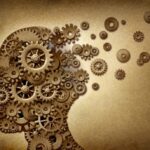“What Causes Alzheimer’s?” is a straight forward question.
Though, unfortunately one that doesn’t have a straight forward answer.
However, in this article, we’re going to do our best to answer it as completely and accurately as possible (and by using plain English so you don’t need a graduate degree to understand what we’re talking about).
The Scientific Cause of Alzheimer’s
In one sense, the what causes Alzheimer’s question is very easy to answer. Alzheimer’s disease, like other forms of dementia, is caused by brain cells dying.
The death of these brain cells happens over time. And it causes the brain to change. It ends up fewer healthy brain cells, fewer brain nerve cell connections and it also gets smaller.
We also know from autopsies of brains from those who died from Alzheimer’s, that their brains have small deposits in them. These deposits, often called plaques and tangles, build up in brain tissue over time.
Both plaques and tangles damage brain cells. The damaged brain cells then die. And this causes the brain to shrink.
These physical changes to the brain are what cause the symptoms of Alzheimer’s.
So that’s a very basic description of what happens in the brain to cause Alzheimer’s. But what causes these things to happen in the brain?
Well, the answer to that question is less clear. Researchers are still not totally sure why these changes happen.
However, there are some causes (or, perhaps more accurately, risk factors) that seem to be involved. We’ll look at 7 of them here…
7 Risk Factors for Alzheimer’s Disease
Age
The risk of Alzheimer’s really starts increasing around age 65. Every 5 years after 65, the number of people with the disease roughly doubles. It’s estimated that around 33% of 85 year olds have Alzheimer’s.
Family History/Genetics
Those who have/had a parent or sibling with Alzheimer’s are more likely to get the disease.
For late-onset Alzheimer’s there does not to appear to be a single gene mutation that causes the disease. Though there does seem to multiple genes that combine together and be involved with late-onset Alzheimer’s. The most well known one of these is the apolipoprotein E gene (ApoE).
There are specific mutations, however, associated with the early-onset form of Alzheimer’s. Familial Alzheimer’s disease (FAD) falls into this category. If a child inherits one of these mutated genes associated with FAD from a parent, it’s a near certainty they will develop early-onset Alzheimer’s. However, FAD is not common. It affects less than 5% of those with Alzheimer’s.
Head Injury
There are studies that link head injuries with Alzheimer’s. We know that head injuries can cause plaques and tangles in the brain. However, Alzheimer’s does occur in many who have not had brain injuries. And not everyone who has a brain injury develops Alzheimer’s. So more research is needed here.
Gender
Alzheimer’s is more common in women than men.
Down Syndrome
It’s not uncommon for people with Down Syndrome to get Alzheimer’s in their 30s or 40s. However, researchers are not sure why yet.
Immune System and Inflammation Issues
Again, there is no conclusive link here. However it’s another possible risk factor researchers are looking into.
Other Possible Factors
Some people blame Alzheimer’s on toxic substances in our environment. Others are looking at whether infections such as the herpes simplex virus play a role. Some researchers are even looking into whether education level is a factor.
Keeping Your Brain Healthy
As you can see from the above, researchers are hard at work trying to better understand Alzheimer’s and its causes and risk factors. But there’s still a lot we don’t know about it.
However, one thing we do know is this… there are some things you can do to keep your brain healthy.
These include:
- Eating healthy foods
- Staying physically active
- Being social
- Engaging in mentally stimulating activities
Doing these things don’t guarantee you won’t get Alzheimer’s. But there’s good evidence they do help reduce the risk of cognitive decline and getting the disease.




